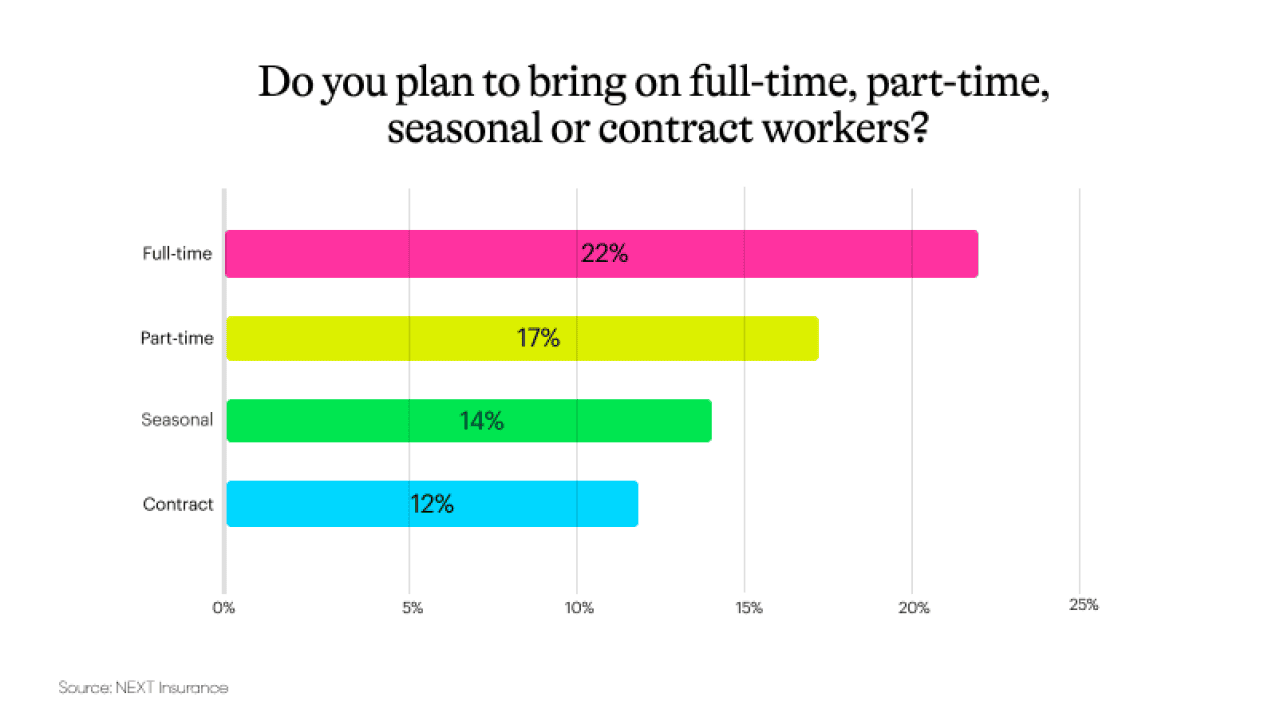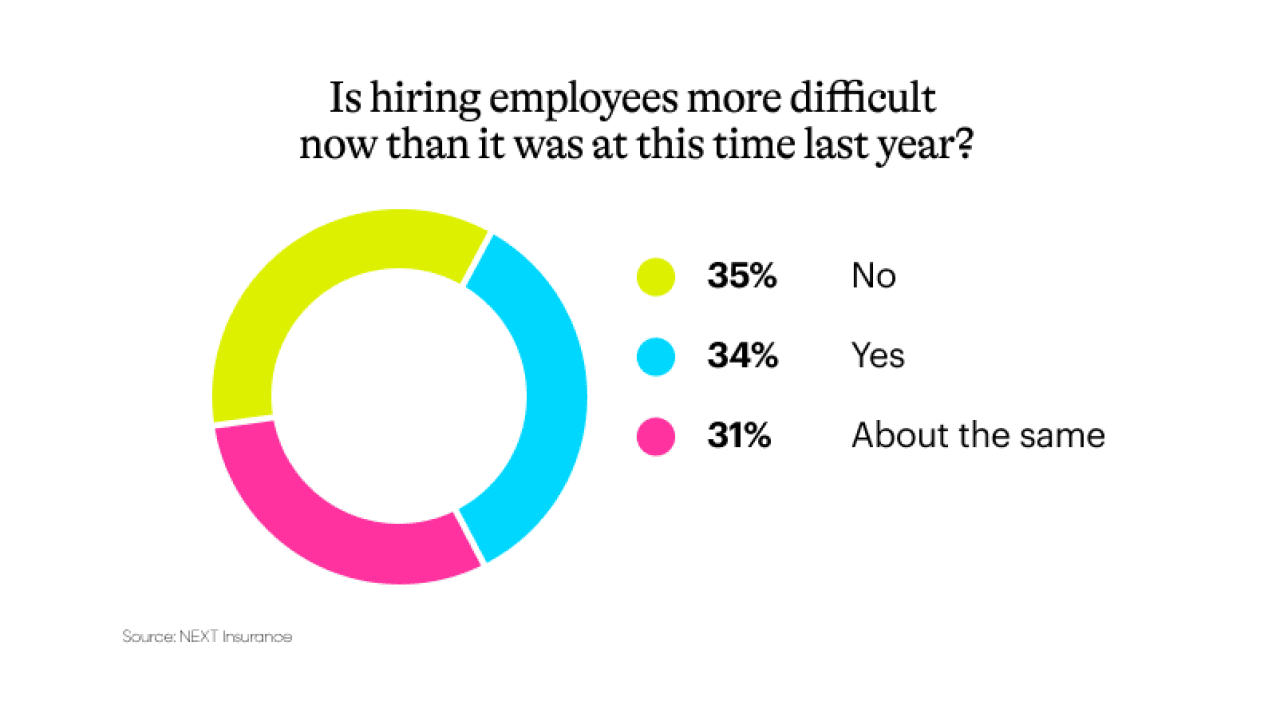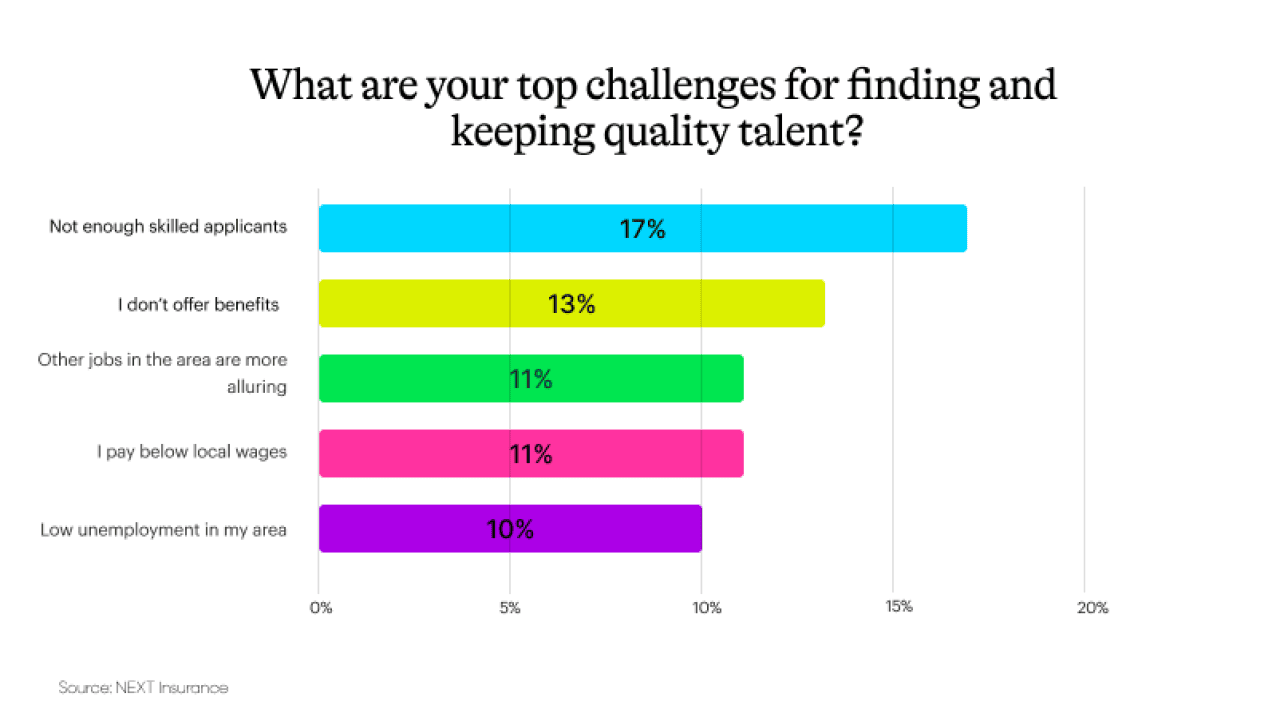66% of small business owners struggle to hire: How companies are changing how they bring in new employees
Published 3:00 pm Thursday, June 12, 2025
66% of small business owners struggle to hire: How companies are changing how they bring in new employees
Many small business owners are ready to expand their teams. But a NEXT research study found that most expect hiring new employees to be a challenge. And many are successfully attracting new talent with new strategies that work.
In April 2025, we asked 1,500 small business owners looking to hire in the next six months for their thoughts about finding and bringing on more workers. The data reveals a difficult hiring landscape, including tough competition and a shortage of skilled applicants.
Demand for more workers is strong and evolving
For Danilo Coviello, founding partner of Espresso Translations, hiring is a strategic move to improve turnaround times, reduce bottlenecks and earn client trust.
“I am in the process of hiring two project managers,” he says. “We’re dealing with an average of 80-100 projects a month… Bringing in two PMs will shave that lag in half and will help us keep client turnaround times under 48 hours.”
Nationwide and across business sectors, small business owners are actively hiring for many roles to stay nimble and meet demand. According to our report, 22% plan to hire full-time staff, 17% seek part-time help, and others are eyeing seasonal workers (14%) and contract roles (12%).

NEXT
According to Ernst & Young’s 2024 Work Reimagined Survey, flexible work is becoming more of a norm. Organizations are shifting from rigid, full-time hiring toward more adaptable project-based and contract roles that adapt to changing workloads and economic uncertainty. The report also notes that skills-based hiring — rather than traditional degree requirements — may help close the gap between available talent and job demands.
Hiring demand is high, many find that talent is scarce
From niche software skills to handling pressure in fast-paced roles, the bar for qualified candidates is high. As demand outpaces supply, small business owners report that finding people who truly fit the job has become more complex.
In our survey, more than 66% said attracting the right talent in the next six months will be somewhat or very difficult. Just a third thought the process would be easy.

NEXT
Coviello puts it bluntly: “I currently need two project managers and it’s proving to be more difficult than it was last year. There are a lot of candidates, but finding somebody who can handle pressure and know software is rare.”
This signals a skill mismatch between open roles and available talent. Hiring isn’t just filling seats; it’s about finding people who can contribute, keep up and stick around.
What makes hiring so difficult?
In our research, the main reason small business owners cite for the challenges in hiring is the lack of skilled applicants (17%).
Others said they struggle to compete because they don’t offer benefits (13%), other jobs in the area are more alluring (11%) or they can’t match local wages (11%). Another 10% report that unemployment is low in the area where they do business.

NEXT
How small businesses are changing how they hire
With flexible work locations, personal referrals and better internal systems, many business owners have found that the best way to compete for talent might not be outspending — it’s outthinking.
Lou Haverty, owner of Tank Retailer, says recent labor market shifts have made it easier to find good people. “A big part of this is due to the overall shift of larger companies requiring employees to stop working from home and come back into the office,” he explains. “One of the biggest assets I can offer employees is the ability to work from home 100% of the time. These candidates also want to receive competitive compensation, but the flexibility of working from home is far and away the most important factor in their interest in our position,” he says.
At All Star Cleaning, co-owner Derek Christian says his employees can be his best advocates for finding talent. “So many employers think people should be grateful just to work for them — but we make sure applicants understand why we’re a great place to be before we start screening,” Christian says. “We like to have someone who really believes in the company call them to sell the company.”
Daniel Roberts, CEO of Lava Roofing, takes a similarly personal approach. “In small business every hire matters,” he says. “Flexible shifts and high salaries… have returned us good results.” By listening to both candidates and current employees, his company built a workplace that values growth, balance and connection — and saw turnover drop 17%.
“Our current employees were vocal about the importance of flexibility and clear growth opportunities. At the same time, we noticed during recruiting that candidates increasingly asked about work-life balance and advancement.” Those changes helped lower turnover and improve employee satisfaction by 23%.
To future-proof hiring, Roberts also builds early connections with trade schools and local communities. “That gives us early access to future talent — especially for seasonal or contract roles,” he says.
Translator Coviello supports his team with systems that prevent burnout and improve workflow. “We audit and tweak processes on a quarterly basis…to respect people’s time, trust their judgment and provide them with systems that actually provide support for their work.”
Others, like Tank Retailer’s Haverty, have shifted hiring criteria entirely. “Initially I was more focused on the employee’s familiarity and understanding of our tank and truck equipment products. What I found was that it was more important for an employee to have a positive and engaging personality.”
This story was produced by NEXT and reviewed and distributed by Stacker.
![]()






